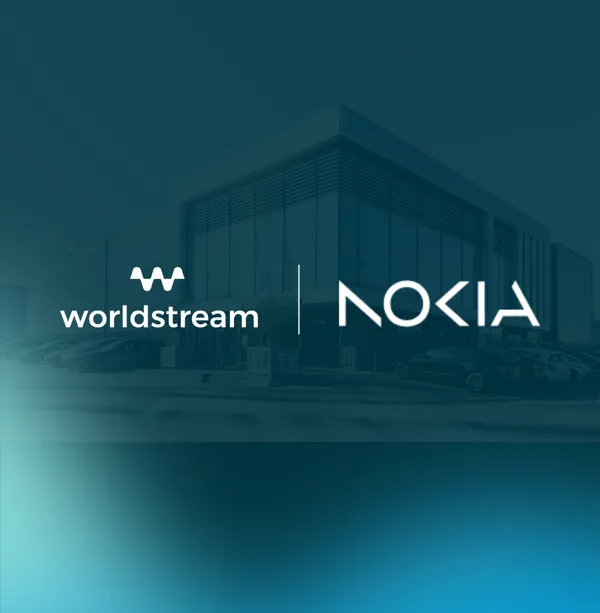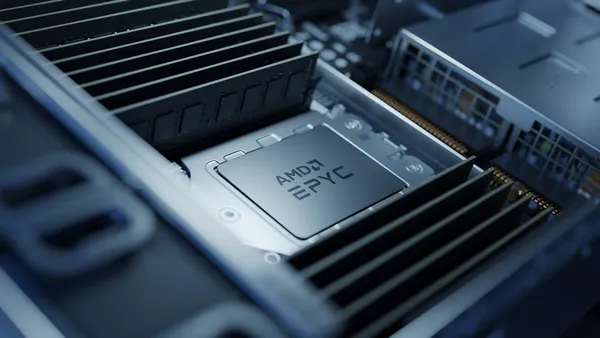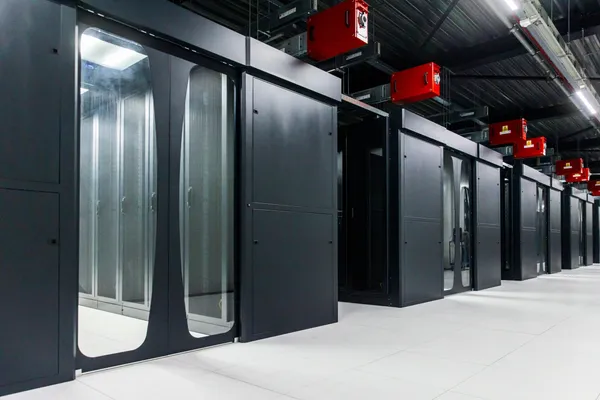When to Switch from VPS Hosting to Dedicated Servers?

News

Determining the right time to switch from Virtual Private Server (VPS) hosting to a dedicated server can be essential to ensure the optimal performance and stability of web applications. However, there are several factors that can influence the decisive moment to switch from VPS hosting to a dedicated server. In this article, we will explain which decision factors come into play.
A fairly common rule of thumb for considering a switch from virtual private server to a dedicated server may be when the RAM, disk space, CPU and bandwidth utilization of a VPS consistently exceeds 70 percent. This can generally speaking be the right timing to continue to ensure deserver capacity and performance and help prevent server outages, for example.
There may be several other reasons though why users could need to switch from VPSs to dedicated servers. We will list some possible arguments for switching from VPS hosting to a dedicated hosting environment.
When the Cost and Flexibility Benefits Turn into a Limitation
A VPS hosting solution is usually a more cost-effective choice. It is due to the fact that a physical server is divided into multiple VPSs. In terms of hardware, this provides cost advantages because the RAM, disk space, and CPU infrastructure are shared by several VPSs. In addition, with VPS Hosting, there is extensive standardization of the solution, which also provides cost efficiencies. For example, if a VPS is configured at 3GB of system memory, that is the real limit. Even if the server on which the VPS is installed would have more memory space available. The limitation ensures a cost-efficient distribution of resources. Maintenance and management is also a bit more complex with dedicated servers, incurring engineering costs.
For a company that chooses to install (web) applications on VPSs, this initially can provide cost savings. In the beginning, the characteristic of a VPS to handle fluctuations in traffic patterns and unpredictable storage needs well can also be an advantage. Gradually, however, the cost advantage of a VPS can turn into a limitation. As (web) applications grow and traffic and storage needs increase, a dedicated server may suddenly prove to be a more resource flexible and future-proof hosting solution than a VPS.
When Server Stability Ensures Higher Cost Efficiencies
In a previous case study, we showed an example of a customer who managed to gain financial advantage precisely with dedicated servers, while you might primarily expect a VPS to be more advantageous. This Worldstream customer, Appsignal, provides software for real-time monitoring of the performance and health of software applications. Our dedicated servers proved to provide significant cost savings in terms of engineering troubleshooting because of their long-lasting stability. For Appsignal, the need for far-reaching stability in their IT infrastructure and removal of the ‘noisy neighbor’ risk typically associated with VPS was the trigger to move from VPS to dedicated servers.
So, server stability and assiociated cost efficiency can be an argument for switching tot dedicated servers. VPS can initially offer a low-threshold, scalable hosting environment, more or less quite similar to cloud computing, while with further growth at some point server stability and associated engineering costs can become a decisive argument for making the switch from VPS hosting to a more stable dedicated hosting environment. At least this was the case with our client Appsignal. The full Worldstream client case study about Appsignal can be found here.
When Maximum Performance is Needed for (Web) Application and SEO
VPSs don’t always come with a dedicated IP address. A dedicated server does. In addition, the performance of a dedicated server is usually a lot higher than a VPS hosting solution. Besides server location and uptime, a dedicated IP address and server performance may have a significant impact on the technical SEO effects, or search engine optimization performance of a web application.
Quite a few applications may not necessarily always need a heavier hosting solution in the form of a dedicated server for the sake of technical SEO. However, there may come a time when the technical SEO needs to be taken to a higher level, for example in the case of ecommerce where one wants to achieve that extra SEO result for the sake of reach and commercial success. The higher performance combined with the dedicated IP address of a dedicated server can thus be a reason to switch from VPS to a dedicated hosting environment.
When Security, Compliance, and Control Become More Important
Moving from VPS to a dedicated server can also be justified when security, compliance and control become increasingly important to a business. Sharing the physical server with multiple users is a feature of a virtual private server that may pose security issues. A hypervisor vulnerability might jeopardize data security even in cases when virtual machines are well isolated. In a dedicated server environment, there is always complete control over all aspects and resources of the server, meaning that security measures can be fully tailored to specific security and compliance needs and requirements. For businesses that must adhere to stringent compliance rules, this might be quite crucial.
In a company’s business journey, detailed security mechanisms, such as data encryption, thorough recording and auditing, and the capacity to react rapidly to any threats, may be necessary at a certain point to meet (industry-specific) compliance standards. A dedicated server provides the infrastructure and flexibility to effectively implement such protocols. In addition, a dedicated server offers the opportunity for in-depth customizations and optimizations that simply aren’t possible in a shared environment like a VPS. In addition, if a security incident were to occur, a faster and more efficient response can be made than with a shared infrastructure. For businesses with strict security and compliance needs, switching from VPSs to dedicated servers can therefore be justified by a more stable, secure, and controlled IT environment – something that is more achievable with dedicated servers than with VPSs.
Dedicated Servers Worldstream
At Worldstream, we do not provide VPS hosting solutions, but we do provide dedicated servers – both in standardized options and fully customized configurations. Many server configurations are suitable for deploying VPS hosting solutions, which several of our MSP customers internationally actually do. Our engineering support can of course always provide you with advice, should you have specific questions about this.
Worldstream offers dedicated servers in two varieties: fully customizable servers and fixed instant delivery server setups. We currently have more than 15,000 dedicated servers installed for our clients in Worldstream’s data centers. These dedicated servers are backed by Worldstream’s proprietary global network. Every dedicated server includes 40 Gbit/s anti-DDoS, which is also upgradeable. Due to the maximum bandwidth consumption of only 45% on Worldstream’s netwerk, server users have optimal scalability and DDoS defense guarantees.
This is the second section of a three-part article about dedicated servers versus VPS. Visit our website next week for the following section, where we dive into the optimization of VPS hosting.
You might also like:
- Benefits of Utilizing NVMe SSDs for Dedicated Servers.
- Ten Dedicated Server Security Tips.
- Best practices for Dedicated Server patch management.
Have a question for the editor of this article? You can reach us here.

Latest blogs
The Ultimate Gaming Latency Guide: How to Eliminate Lag and Maximize FPS
Knowledge blog

Growing smarter with less maintenance

Knowledge blog

Worldstream and Nokia Join Forces for Next-Gen DDoS Protection

News

Worldstream unveils new positioning and offers customers more control over their digital infrastructure

News

5th Gen AMD EPYC 9355P – Now Live at Worldstream

News

Nokia strengthens Worldstream’s hosting security with advanced DDoS Protection in the Netherlands.

News
